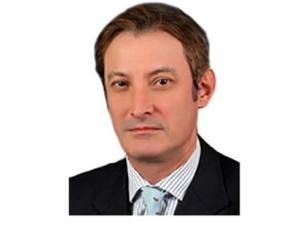THE PHILIPPINES IS awash with the downpour from yet another typhoon, one which is providing an ominous backdrop as I write this column from Manila. The Philippine capital thankfully was spared the worst of typhoon Melor, which wreaked havoc in the southern islands of Samar as it crossed the archipelago.
But there’s another typhoon brewing on the horizon as the presidential election season unfolds, and that comes in the form of the candidacy of a gentleman called Rodrigo Duterte.
The run-up to next May’s presidential election comes with all the usual lurid grotesquery that characterises the process in this singular country, but if there is any parallel with the proceedings in the US, then Mr Duterte is your Donald Trump. With bells on. Or razor blades, or something similarly corporeally threatening.
Rodrigo Duterte has made a name for himself as mayor of Davao, a city in the predominantly Muslim south of the Philippines which earlier this year was voted the fourth safest city in the world, according to crowd-sourced rating site Numbeo. This ascent into the ranks of super-safe city came after decades of violent street crime and has been attributed to Mr Duterte’s no-nonsense approach to policing.
The problem – if you have a problem with such things – is that Mr Duterte’s approach seems to have encouraged extrajudicial killings of suspected criminals, especially drug users and dealers. Davao has become notorious for its “death squads” which take it upon themselves to liquidate perceived undesirables in the city, and Duterte has suggested in the past that he would encourage similar methods should he be elected to the country’s top post. A figure of 100,000 criminals up for extrajudicial killing was mentioned.
A lot can happen between now and the election
I HAVE NO idea whether Mr Duterte has taken a leaf out of Donald Trump’s candidacy pitch book, making outrageous policy prescriptions only to see popularity ratings subsequently soar, but there’s no doubt that the proposals the Filipino presidential wannabe has made chime with the electorate.
A Pulse Asia poll taken last week in Metro Manila concluded that around one in three voters in the metropolis would vote for Mr Duterte should the election take place this month.
That puts him ahead of other leading candidates, including senator Grace Poe, who is fighting disqualification from the race, vice president Jejomar Binay, senator Miriam Defensor-Santiago and former interior secretary Manuel Roxas. The latter is being endorsed by incumbent president Benigno Aquino, but the ex-investment banker and great grandson of a former president of the Philippines trails in the polls.
During a casual conversation in Manila with a former Asian Development Bank staffer last week I was told that Duterte is regarded as a slam-dunk for president, with his most committed support apparently coming from the ranks of the Philippine National Police force who admire his buffalo stance towards crime prevention.
Of course, a lot can happen between now and the election. Having lived in this country during the run up to two presidential elections I can testify to the truly bizarre nature of the proceedings, which involve a cross between Shakespearean history play, Machiavellian tract, daytime television schmalz and industrial-scale karaoke routines in front of massed crowds.
THE IRONY OF Mr Duterte’s popularity is that it emerges in a sustained period of economic success for the Philippines. Growth rates have been the highest in South-East Asia for the past three years, and president Aquino has been one of the country’s most credible leaders. Certainly there has been no whiff of the corruption which followed his predecessors Joseph Estrada and Gloria Macapagal Arroyo out of office (the latter remains under arrest in a military hospital).
Still, as I walked the streets around Edsa, one of Metro Manila’s main thoroughfares last week, I was struck by how little had changed in the districts I knew well when I lived in the city over 15 years ago. The same mishmash of beleaguered eateries, beauty parlours and vulcanising mechanic shops stretched out under the teeming rain. And despite the installation of a light railway 15 years ago with the aim of reducing congestion, the traffic has remained its essential gridlocked self.
Something that struck me on this visit is that many of the Filipinos I conversed with, particularly of the younger generation, regard former president Ferdinand Marcos as something of a hero. The Philippines was a much better place under his watch, so they said. There were new roads, new bridges and much less crime. All well and good, except they don’t quite seem to get the concept that stealing billions from the national treasury as he did might well have prompted the mess that many Filipinos perceive their country to be in today.
That perhaps explains the Duterte phenomenon. Ferdinand Marcos ruled the Philippines for the best part of 20 years using martial law and was fond of the extrajudicial approach favoured by Mr Duterte. Perhaps nostalgia for the good old days, remembered or assimilated, will see him elected president next year. And if he can do the same for the country’s economy as for its crime statistics, perhaps he is just the man for the job.
